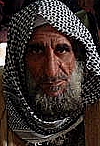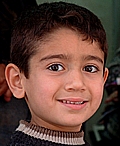|
Middle East
Focus
Iraq 2002-2005
Articles
Here is where you find everything we have
published - and the best of what others have said:
From Global Issues April 6, 2006
The
Iraq Crisis - the Effects of Sanctions
An incredible collection of all the relevant documents by a leading
website on international affairs. We link to it here because the cruel
sanctions that killed around 1 million Iraqis (and destroyed so much
in former Yugoslavia too) must not be forgotten and because there is
talk again about sanctions, this time against Iran. Sanctions is a Weapon
of Mass Destruction and, as such, should never be used!
TFF PressInfo 230, TFF Asssociate Richard
Falk, December 4, 2005
Ending
the war on Iraq
The solutions proposed in the American political mainstream are not
convincing: wait until the Iraq military can bring stability to the
country seems like waiting for Godot. We should have learned better
from our Vietnam experience. Mobilise the U.S. anti-war opinion, help
Iraqi reconciliation and consider the 8 balanced steps that must be
taken now to get us out and reshape our policies in the region.
By Richard Falk.
Hans von Sponeck, TFF Associate, December
4, 2005
Iraq
- the burden of sanctions
The fate of a people became collateral damage, a euphemism for death
and destitution. Important and final facts have now become available
for the period of the oil-for-food programme. As the Volcker committee's
report occupies the headlines it is important to remember that the original
crime was the indiscriminate use of sanctions against the people of
Iraq.
Hans von Sponeck, TFF Associate, November
8, 2005
Iraq:
Humanitarian Issues and Tensions in the Oil-for-Food Programme 1998-2000
and Beyond
The authoritative study with the needed documentation by the person
who knows because he was there - a person whose commitment to the welfare
and dignity of the Iraqi people can not be disputed.
In parts it summarizes the content of von Sponeck's new book in German,
Ein
anderer Krieg. Das Sanktionsregime der UNO im Irak (Hamburger Edition,
2005).
The US/UK led sanctions killed many times more people than the war has.
While the debate on fraud within the UN dominates the media, we forget
that the real issue ought to be: why did the UN Security Council
members persist in upholding a sanctions regime full well knowing that
its effects amounted to one of the largest genocides in modern times?
This article and von Sponeck's new book help you understand exactly
why.
Hans von Sponeck, TFF Associate, September
21, 2005
To
an unknown Iraqi (2003)
As predicted the most uneven war in history did not last long. While
we continued our lives in the comfort of peace, we watched you suffering
the horror of war. Will you every forgive us? Sadly even truer now two
years later.
Johan Galtung, TFF Associate, July 15,
2005
Human
rights and the illegal US/UK attack on Iraq
By some counts the attack on Iraq is US aggression no. 239 after the
Thomas Jefferson start in the early 19th century and no. 69 after the
Second world war; with between 12 and 16 million killed in that period
alone. All of it is in flagrant contradiction of the most basic human
rights, like the "right to life, liberty and security of persons" (Universal
Declaration, UD:3) and the condemnation of the "cruel, inhuman or degrading
treatment or punishment" (UD:5).
Hans von Sponeck, TFF Associate, July
15, 2005
The
conduct of the UN before and after the 2003 invasion
von Sponeck's statement at the World Tribunal on Iraq
TFF Associates, July 8, 2005
Keynote speakers at the recent World
Tribunal on Iraq
- Richard Falk:
Opening Speech on behalf of the Panel of Advocates: Macro approach to
the system; the "moral" responsibility underlying the constitution of
the UN; the limits to the exercise of power for the states; violation
of international law.
- Hans von Sponeck:
The conduct of the UN before and after the 2003 invasion
- Johan Galtung:
Human Rights and the U.S./U.K. Illegal Attack on Iraq
- and all the other contributions, the Preliminary Declaration of the
Jury of Conscience, press releases etc - all here.
- And
this is what John Pilger had to say about the Tribunal.
TFF Feature Collection, February 1, 2005
Iraq
Analyses: The resistance & the elections
Plus human rights, WMDs, the occupation in a wider strategic perspective
and the destruction of Babylon
Some 40 articles on aspects we should keep in mind in the future. They
offer perspectives on what to learn and what to remember when they build
up the next crisis...
Hans von Sponeck, January 27, 2005
Iraq
and the United Nations: Dilemmas of the Future
With his 32 years of service in the UN - of which two as humanitarian
co-ordinator in Iraq - von Sponeck's soft-spoken knowledge of the issues
and his humane visions make a must read for anyone concerned with international
affairs. Later this year he publishes "Iraq Autopsy" - probably the
most insightful analysis so far of these complex issues.
Farhang Jahanpour, January 14, 2005
The
Iraqi elections must go ahead as scheduled: the alternative is much
worse
There are four main groups inside Iraq who oppose the elections. In
spite of spiralling violence, elections should be held. Jahanpour argues
postponing the elections does not promise a better situation later.
He also analyses the regional aspects, the relations beetween Iran and
Iraq and outlines what the U.S. must do, including leaving Iraq.
Francis A. Boyle, January 5, 2005
The
legal elite and the Iraq war: The Nazis had their law professors, too.
From Counterpunch.
See his book, Destroying
World Order
Brian Martin, January 5, 2005
Iraq
attack backfire
Attacks of all sorts can backfire, especially when they are perceived
as unjust. But as well as being a potential outcome of an attack, backfire
can be studied as a process. Attackers often seek to prevent backfire,
whereas opponents of the attack seek to magnify it. Backfire is an ongoing
struggle, a sort of game. The key is to understand the rules of the
game.
Iraq
Feature Collection 4
Iraq
Feature Collection 3
Iraq
Feature Collection 2
Iraq
Feature Collection 1
|

|
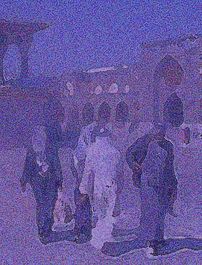
Donate
online to TFF's work in Iraq
Ge
Ditt stöd online till vårt arbete i
Irak
Bidra
via postgiro till vårt arbete i Irak
Støt
TFFs arbejde i Irak per postgiro
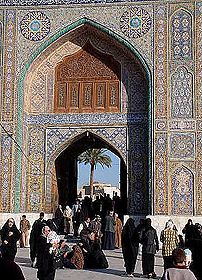
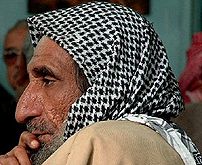
© Jan Oberg

Salaam...peace!
Get
free articles & updates
Photo galleries
"Iraq's
Faces and Surfaces"
More than 20 unique
photo series
by Jan Oberg
They are large formats,
so please be patient when loading
War Diary in 53 articles
Operation
Think Freely About Iraq # 3
Operation
Think Freely About Iraq # 2
Operation
Think Freely About Iraq # 1
Comments about Operation Iraqi Freedom
and about the media
By TFF's Iraq Conflict-Mitigation team & Associates
How many dead civilians as of today?
The
Iraq Body Count
The accumulated monetary costs
Cost of War
What happens to Iraq's oil industry?
Global
Policy Forum
Iraq
Revenue Watch
WarProfiteers
We mourn the death of our Iraqi friend,
Dr. Akila Al-Hashimi

© Jan Oberg
Dr. Akila Al-Hashimi,
former plenipotentiary minister,
Dept of International Organisations,
Ministry of Foreign Affairs, Baghdad.
TFF's team met her in January 2003. In her humble and knowledgeable
way she taught us much about Iraq and opened doors to other good people
for us.
She was one of the three women members of Iraq's Governing Council.
She had been talked about as the next Iraqi ambassador to the United
Nations.
On Saturday last week she was shot by unknown gunmen.
On
September 25 she died.
Gunmen killed her, yes. But like the UN and Sergio de Mello, Al-Hashimi
is a victim of the war and the occupation.
Get
free articles & updates
|






